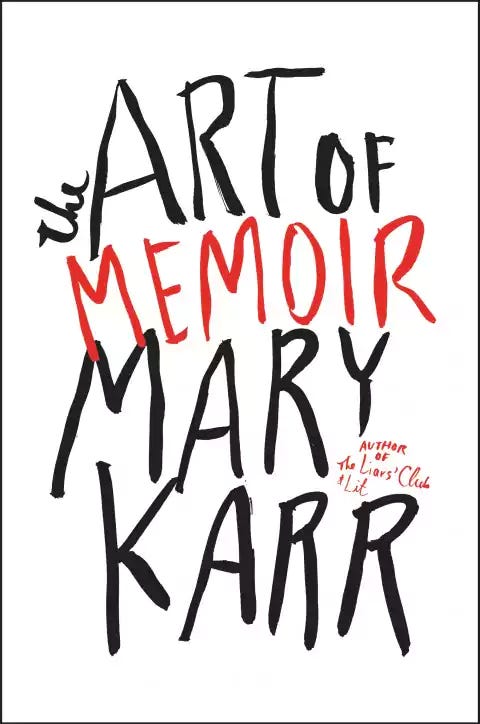Getting Started on Your Memoir Writing Journey
When I tell people I’m writing a book, most often they will tell me they’ve been thinking about writing one too. It’s as if they’ve been carrying this desire to write and finally found someone to share this secret with.
The interest they exude in my own book project is close to zero. It feels mildly unpleasant, like being doused with lukewarm water, and this makes me question my life decisions.
In all seriousness, writing my book has been an incredible experience. This is why I am starting a blog post series on writing and publishing, starting with this one: how to write a book about your life. Enjoy.
A Word on My Methodology
As a novice author, I compiled this blog post through research and interviews. I researched this topic through two public libraries (from Fairfax and Arlington counties). There were two books specific to memoir writing. I read through both books and summarized them in this post. I also interviewed Clayton Bohle, Developmental Editor at Manuscript.
Interviewee Background and Book Citations
Writing About Your Life: A Journey into the Past, by William Zinsser

Although the title of the book is encouraging, the book itself is more of Zinsser’s own memoir instead of how to write one yourself. Nonetheless, Zinsser still left nuggets of information in this book, and I’ll summarize that for you in this post.
William Zinsser was an American writer, editor, literary critic, and teacher. He passed away in 2015 at the age of 92. He wrote this book when he was in his early 80s, and it showed. The book has a “get off my lawn” grandpa feel to it. Zinsser looked about a zillion years old (in a good way, folks, in a good way) when I Googled his image, so we know we are getting aged and wise advice from him.
The Art of Memoir, by Mary Karr

Mary Karr is a well-respected poet, essayist, and memoirist. Her book was highly enjoyable to read. It gave a lot of instructions on how to dig deep within oneself to get the details needed to describe your stories, truth-telling, and other specifics of memoir writing techniques.
Clayton Bohle, Developmental Editor at Manuscript

Bohle holds an MFA from New York University Tisch School of the Arts. He started his career in LA in script development and worked for companies such as Showtime and TOKYOPOP. He was a finalist judge for the Slamdance screenplay competition in 2017.
Bohle transitioned to his current role as a developmental editor to have more one-on-one focus with each author’s stories. He has helped over 20 authors to write and publish their books.

Should I Write a Memoir?
Memoir writing is a way to preserve your story and legacy.
Zinsser believes that a memoir should be a tool we use to examine our humanity—not to glorify our achievements. While we are always the protagonists of our own lives, we may not be the hero.
“Get your intention clear before you start and tell your story with integrity,” Zinsser suggested.
Another thing to keep in mind before starting is the importance of recalling your memories. Details in your writing will bring each story to life. If you are writing about events that happened over a decade ago, your descriptions may be stale and less vivid to the readers.
As humans, I believe we all have a desire to write our story and read others’.
While writing my book, I shared aspects of myself I thought I’d never tell a soul. I wrote about my grandmother’s journey as she fled the Communist and came to Taiwan. I described my father’s experience as a pediatric surgeon and the events that shaped his personal philosophy.
The act of writing my story and my family’s stories did something for me. I still cannot perfectly describe what it was, but it was a kin to examining my soul and finding it both cracked and brilliant.
I do not know if these stories will make it in the final publication of my book but the writing process gave me a chance to take stock of who I am and where I came from. This is an experience that I will always treasure.
How to Write an Interesting Memoir
An autobiography is a reflection on one’s entire life—a straightforward description from birth until the current point in time. A memoir falls into the genre of creative nonfiction and focuses on a specific theme or event of the author’s life.
Writing an interesting memoir is more akin to storytelling than journaling.
“The key is to understand your viewpoint and what you would like to convey to the readers,” suggested Bohle. “You are describing your experience, humanizing it, and telling it through stories so that your readers can put themselves in the same situation and experience alongside you.”
Bohle also stressed the importance of show, don’t tell. For example, instead of just writing the gist of your conversation with someone, describe where it took place, what sounds or smells you remember, what the other person looked like and their facial expressions during the conversation, and of course your own emotional reactions throughout the scene.
Some memoirs are steeped in history, and you may need to bring the readers into the past to give them context. Other memoirs provide important life lessons that you should further articulate in a separate section of the book.
All of these details would add richness to your writing.
Believe in the validity of your life and write about it with confidence and enjoyment
William Zinsser
Do I have Enough Material for a Book?
The editors I spoke to mostly agree that non-fiction works should be over 35,000 words. Anything less would make the book feel slightly flimsy. Therefore, if you believe you can write over 35,000 words, you have enough material for a memoir.
To further understand the amount of material you may have for your book, we can describe it by the number of chapters. A good chapter length to aim for is between 2,500 to 4,000 words. This is also about the same word count as a typical college essay. So, if you can write 8 to 9 college essays worth of material, then that is the same as a short memoir.
Here are some examples of memoir words based on pages.
- Tuesdays with Morrie (2002) by Mitch Albom – 35,000 words
- Movable Feast (1964) by Ernest Hemingway – 36,000 words
- I Am Malala (2016) by Malala Yousafzai – 41,000 words
- When Breath Becomes Air (2016) by Paul Kalanithi – 68,000 words
- I Know Why the Caged Bird Sings (2009) by Maya Angelou – 80,000 words
- Running with Scissors (2003) by Augusten Burroughs – 80,000 words
- Wild (2013) by Cheryl Strayed – 84,000 words
- Angela’s Ashes (1999) by Frank McCourt – 92,000 words
- Educated (2022) by Tara Westover – 115,000 words
- Eat Pray Love (2007) by Elizabeth Gilbert – 130,000 words
- Becoming (2021) by Michelle Obama – 165,000 words
Here is a good article by Lloyd Literary Agency on word count for memoirs.
When I first started writing, my stories were shallow and unsubstantial. I could have been 100 years old and been done describing it by page 6. To me, bringing in rich details does not always mean reaching into the deep deep crevasse of my all suffering soul and scribing it in Dante’s Inferno style. It means adding facts backed by research, background history, and some dorky humor of my own.
A tip I hear often but never appreciated until now is keeping a diary. It’s a way to keep notes on your life that you can tap into whenever you’re ready to expand them into a memoir. Cheryl Strayed kept a journey; as a result, her book Wild had lavish details that couldn’t be created had she sat down to write afterward.
A diary can also help you with recalling the senses. The more you can describe a scene through the five senses, the better you can submerge your readers into your story. Little details from your diary are there to help you recall those memories so you may transcribe them more vividly in your book.
What About Memoir Structure?
If you tell your life story from the beginning to your current day, then you are writing an autobiography—not a memoir. Other than that, memoirs do not have a fixed structure.
So where to start if you want to write a book about your life?
The advice Zinsser gives is to begin by writing down your most vivid memory. When you are done writing that story, recall another one and write that down. Rinse and repeat, writing one story per day for about 2 to 3 months. These stories do not have to be related to the other; the importance of this exercise is to practice your writing and to develop your voice.

Once you’ve written stories over several months, you could gather enough material to better organize into a book. Look for holes in the overall story you would like to tell to fill the gaps.
Karr on the other hand gives this recommendation: “Start with a flash forward that shows what’s at stake emotionally… then tell the story in straightforward, linear time.”
This may be a good way to structure your memoir. Imagine that you are telling your story to friends; you shouldn’t have trouble figuring out what to say next and how to say it.
“Pick the main point and just dive in from there,” Bohle recommended, “not worrying about the start or what goes after.”
Like many editors I’ve worked with, Bohle stresses the importance of getting all the words out first. This helps authors get a complete first draft without being bogged down on details. You can always rearrange the pieces later.
Just Write
The single most important thing about writing a book on your life is to just write.
Before writing turned into a habit for me, I would type out a few sentences only when inspired. Then I would sit back and admire my handy work. Ah, that is a beautiful paragraph.
Then, I joined a program and learned the power of a writing deadline.
If you would like to build your writing muscles, here is what I would recommend:
Week 0 – think about writing
Find a spot in your home that is comfortable and cleared of clutter. Ideally this is a dedicated space for the task. Even if there are days when you hate writing, you would still like sitting there.
Week 1 – write 1,000 words
This can be the start of your memoir, an outline of the book, or a practice story.
Weeks 2 thru 4 – write a total of 5,000 words
Get 5,000 words onto the page for the body of your book. That means the total word count should not include table of content, bullet points, or references.
Weeks 5 thru 6 – write a total of 13,000 words
Picking up the writing pace. This more than doubles your previous week’s word count. By now, it should feel like you would need to dedicate a time of your day just for writing. Find a time in the day when you wouldn’t be distracted, about 20 minutes per day to start. Forget about voice and style and whatever fancy pants concerns that may be holding you back and just focus on keeping the words flowing.
Weeks 7 thru 8 – write a total of 20,000 words
No sh*t, twenty f-ing thousand words? That is what I thought when I was first hit with this deadline.
This translates to around 500 words per day. A solid beginner’s pace. For comparison, Stephen King claims to write 2,000 words per day so you can always aim a higher daily output if you’re ambitious.
Now, fingers on keyboard and go for it!
Note: The writing timeline is based on Allison Fallon’s program, as described in her book The Power of Writing It Down and Manuscripts’ program.
If you’ve enjoyed this blog post or have other questions on how to write and publish a book, comment below. I would love to hear what ideas you have for me to research and present in this blog post series.